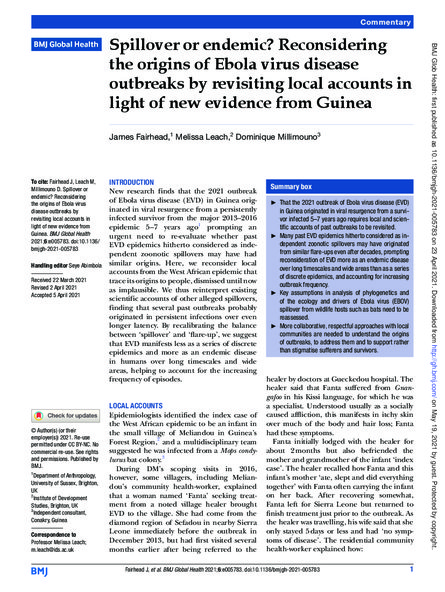
New research finds that the 2021 outbreak of Ebola virus disease (EVD) in Guinea originated in viral resurgence from a persistently infected survivor from the major 2013–2016 epidemic 5–7 years ago prompting an urgent need to re-evaluate whether past EVD epidemics hitherto considered as independent zoonotic spillovers may have had similar origins. Here, we reconsider local accounts from the West African epidemic that trace its origins to people, dismissed until now as implausible. We thus reinterpret existing scientific accounts of other alleged spillovers, finding that several past outbreaks probably originated in persistent infections over even longer latency. By recalibrating the balance between ‘spillover’ and ‘flare-up’, we suggest that EVD manifests less as a series of discrete epidemics and more as an endemic disease in humans over long timescales and wide areas, helping to account for the increasing frequency of episodes.
This is a BMJ Global Health publication originally published on BMJ Journals.